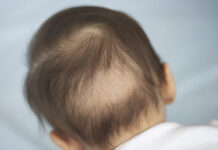In this blog, we will be debunking 15 baby myths.
Myth #1: “Debunking Baby Myths Infants who walk and talk early are the most splendid of their friend bunch.”
Even however an early talker may will, in general, improve in language abilities further down the road, it doesn’t imply that kids who are not early talkers won’t rise to or transcend those talkers. Also, with walkers, which is something alternate, that is engine advancement. Engine advancement is better at foreseeing postponements and relationships with different issues that may emerge. So on the off chance that you notice there’s a deferral in strolling, that is something critical to converse with your pediatrician about. In any case, it isn’t evident that an early walker will get you into Harvard.
Myth #2: “Never wake a resting child.”
And this is a fantasy specifically in the initial not many long stretches of life. Thus, infants genuinely need to take care of much of the time, and if you end up having a languid child, you will wake them each three to four hours to take care of around then. Believe it or not. Somewhere in the range of five and a month and a half old enough, day and night rest is coordinated. So if they’re dozing more than three and a half hours during the day, by then, you truly need to give them a little bump so you can get them pleasant, solidified rest in the evening time. As kids get more seasoned, you can allow them to rest longer timeframes.
Myth #3: “Cradlesongs help infants rest.”
This one is entire of a fantasy, however not totally, because the demonstration of singing a bedtime song that quieting music can quiet both you and your infant. Yet, it is anything but a wizardry pill that will ensure that your child nods off. Discovering approaches to alleviate your newborn child, particularly utilizing music and contact, will loosen up them and prompt a sleepier state. “Rests aren’t required.” Oh. In small kids and children, rests are fundamental. Very. I generally say that individuals who resemble, “I’m going to keep my child up the entire day, so they rest throughout the night in that first year of life,” you will have a furious infant, and that won’t be a pleasant infant to deal with. Furthermore, in this young age, mainly that first year of life, we genuinely center around snoozes to assist your child with learning, control their conduct, and nod off better since an excessively worn-out infant is resting more awful. You truly need to keep even one rest. You don’t need your newborn child or baby alert for more than around five hours all at once. In this way, as of recently old enough, rests are truly significant for daytime conduct, enthusiastic turn of events, and evening coordinated, combined rest.
Myth #4: “Infants ought to be staying asleep from sundown to sunset by a quarter of a year.”
We all expect that. Each mother wishes that. If your child isn’t staying asleep from sundown to sunset since they need to have taking care of or two feedings, that is OK. As of recently, you truly need to allow your baby to coordinate how that will go. And afterward, beginning following four months, somewhere in the range of four and a half years, you can consider your impact on their evening time rest.
Furthermore, you may lose your companions if you continue to boast about your 3-month-old who’s staying asleep from sundown to sunset, and they have a 3-month-old who’s definitely not. Gracious, this is a decent one.
Myth #5: “Certain toys will make children more intelligent.”
The legend is that it’s the toy-making the child more astute. What assists your child with becoming more intelligent is the connection between you and your infant while playing with a toy. If you stick a child down with many squares, your infant isn’t becoming more intelligent from those toys. The ideal approach to developing your child’s mind in that first year of life is connected with a parental figure. You would then be able to discuss the toy, depict the toy, support your baby’s disclosure of the toy through language and portrayals, yet the toys themselves are never going to make your infant more brilliant. Something else to remember is that you may end up utilizing a dull voice with high-pitch sounds and, similar to, a prominent, misrepresented face when you are playing with your child. Furthermore, a few groups may even believe you’re talking child talk. Indeed that is classified as “parentese,” and it is quite possibly the primary employments of language. At the point when you utilize that voice, and you say, as: “[gasps] Look at that square you’re playing with! Is that an earthy-colored square? Are you putting that on top of a blue square?” The significant piece of that will be that your language is drawing into the point that parentese is related with such lifts in language advancement sometime down the road. Presently, infant talk, where you’re saying “goo gaa goo gaa,” that isn’t valuable for anybody, aside from the off chance that it gives you colossal enjoyment and can’t help yourself and you truly need to get in there with that child. It’s your language and your connection and your utilization of parentese to truly get you that support in academic improvement you want to get from the toy.
Myth #6: “Ricocheting infants will make them bandy-legged.”
I hear this constantly. Indeed, I have heaps of guardians say to me just after a child’s conceived, “Gracious, no, he’s pigeon-toed!” And the intriguing thing is this is because when an infant is in the belly, most children have their legs crossed. So they come out somewhat bored-looking, and it is typical for the legs to have that appearance. Furthermore, numerous infants have the intuition to stand and bear weight on their legs, which is incredible for their engine improvement. You’re socially captivating with them, but on the other hand, you’re assisting them with creating muscle strength and control. So this is a fantasy. Numerous grandparents are into it. They’re likewise similar to, “Don’t allow your infant to sit till they’re prepared, ’cause it’s going to destroy their back.” That is another fantasy. I would add: You needn’t bother with a gimmick. In this way, a jumper is undoubtedly not a decent method to assist a child with creating. That’s right. Since they go more on the toes, and that is something that most formative trained professionals do not suggest. “Unnecessary crying methods something isn’t right.” If you feel like your baby is unreasonably crying, the principal thing that you need to do is discuss with your pediatrician to ensure that there is nothing incorrectly medicinally. You do a one-over on your entire infant to provide, “Okay, my child appears to be OK, my infant’s taken care of, my infant’s peed and crapped, whatever, what’s happening here?” And then frequently, it’s simple, they’re so conscious and tired, they can’t quiet their body down at this young age. The most meticulous period is between three to about a month and a half of life. What’s more, many refer to it as baby colic, which individuals have likely found out about.
What’s more, the meaning of colic is crying in any event three hours every day, at any rate three days of the week, for at any rate three weeks. Something to be thankful for I tell guardians is if the child quiets down when you’re shaking them in a delicate shaking way, shushing them, and you’re similar to, “Goodness, on the off chance that I hold the infant, they quit crying, yet every time I put them down, they cry.” That’s consoling to me that there’s not some genuine difficult issue going on and that the infant is support by you and simply needs that help. By and large, I say to individuals, if the infant cries over an hour in a row and nothing is quieting them down, check in with your pediatrician. Furthermore, you could be doing everything right and it won’t prevent the infant from crying for the time being, however once more, you will help their drawn out improvement.
Myth #7: “Picking up a crying child will ruin them.”
Picking up a crying infant won’t ruin them. Try not to allow anyone to disclose to you in any case. Individuals are regularly exceptionally stressed over ruining youthful newborn children. Kindly ruin your young babies. Indeed, begin to look all starry-eyed at. I say my work as a pediatrician is to help you begin to look all starry-eyed at your child. I need you to contact that child. I need you to cuddle the infant. Also, the inclination a child has of being disturbed and crying and focused, and afterward when they quiet with you, that really shows their mind to go from upset to quiet, and that is a fundamental ability. Presently, as your youngster gets more established, would you be able to ruin an infant or a kid who’s crying and saying, “I need candies for supper”? Indeed, you can. Clearly! Don’t then get them and give them the candy. That is an entirely unexpected thing. In these first long periods of life, encouraging your infant and quieting their body down really assists them with being more settled people long haul.
Myth #8: “Putting honey on a pacifier will help with teething.”
This is a dangerous myth, actually. Some myths are just like, your friends are talking about that, don’t believe it. This one is actually dangerous. Babies should not have honey in the first year of life. And the risk of honey comes from a bacteria called botulism. The spores from botulism your body can process, but young infants cannot, and it can actually cause paralysis, meaning a paralyzed, limp infant, which could be quite dangerous, life-threatening, obviously. No honey in the first year of life for any baby. It’s really something everyone should know.
Myth #9: “Baby walkers help babies walk.”
Baby walkers do not help babies walk. Some small studies show that babies who use walkers walk later than babies that do not use walkers. Do not get a walker because you want your baby’s muscles to develop the way they’re supposed to, without contraptions. The AAP, that’s the American Academy of Pediatrics, recommends against walkers. No. 1, because they do delay walking. But no. 2, because children can actually fall in walkers, fall downstairs in walkers, and have the ability to reach developmentally inappropriate things, like hot stoves, hot water. I’ve had many patients be like: “Oh, my gosh, we put it on a registry. I feel so bad. I already got it.” Return it.
Myth #10: “Debunking Baby Myths; Getting teeth can cause fevers.”
I get paged about this fantasy constantly. Individuals will say: “My child has a 103 fever. It’s worthy motivation ‘they’re getting teeth.” That is a legend. Getting teeth ought not to reason fevers. It may make your child somewhat more particular. It may cause them to eat somewhat less, yet it ought not to reason fever. It ought not to reason hack.
Debunking Baby Myths, It ought not to reason runny nose, regurgitating. Every one of those things makes me think your child has some sort of contamination. Something different going on. So in the event that you have a fever and you’re worried about the reason, check in with your pediatrician.
Myth #11: “Getting teeth can cause fevers.”
I get paged about this myth constantly. Individuals will say: “My child has a 103 fever. It’s noble motivation ‘they’re getting teeth.” That is a fantasy. Getting teeth ought not to reason fevers. It may make your child somewhat more particular. It may cause them to eat somewhat less, however, it ought not to reason fever.
Myth #12: “Infants need water when it’s hot.”
Debunking Baby Myths, This is unquestionably a misconception, particularly at the start of life. Along these lines, the main month of life, a few guardians and grandparents will say: “Your child needs water. It’s hot out.” Your infant ought not be given water. We say bosom milk or equation just for infants. Their kidneys are really youthful, and surrendering water could wreck their electrolytes and be very risky, indeed. As your youngster gets more established, around a half year of life, we do urge you to present water for your kid. However, as a rule, numerous individuals are under the impression, similar to, “Goodness, water is a preferred hydration liquid over bosom milk or recipe.” But really bosom milk and equation are extraordinary for hydrating children.
Myth #13: “You ought to try not to give peanuts, fish, and eggs to your kid until they’re a baby.”
This was a major fantasy. Debunking Baby Myths Enormous legend. What’s more, truth be told, it used to be upheld by the clinical local area, however there now is truly solid information showing that in reality, prior presentation increments what we call resistance, implying that you will not have an unfavorably susceptible response. Yet, there indeed is even an FDA suggestion that newborn children between four to a half year of life have nut items brought into their eating routine on the grounds that there is such convincing information about the decrease in food hypersensitivity. I generally say, talk with your pediatrician about precisely how to begin it and on the off chance that you have explicit family hazard factors. Once more, I may underscore the one food you don’t present: no nectar till one year.
Myth #14: “Playing classical music can make your child more intelligent.”
Playing traditional music will be one of the numerous things that you can do, positively, to encompass them with the sorts of invigorating hear-able encounters that will draw in their mind. Notwithstanding, playing classical music all by itself won’t make your infant more brilliant. All things considered, the to and fro associations that an infant has with a parental figure where they hear genuine words generally communicated in your local language so you can talk with most articulation and you’re showing joy and reacting to the infant, that is the thing that advances the language improvement and the social improvement of the cerebrum the best. Debunking Baby Myths this is one of the entertaining.
Myth #15: “An infant’s length will determine to you how tall they’ll be.”
Debunking Baby Myths, Lots of parents fanatically consider the development graph. I will admit, I here and there fanatically consider my youngsters’ development outline. The greatest indicator of your youngster’s last tallness is really guardians’ stature. Along these lines, we call something “mid-parental stature” as the best indicator. Furthermore, another enormous indicator is the point at which the infant, the kid, goes through adolescence. Thus, typically the more you postpone adolescence, the more long stretches of development you have. Thus, there are a few youngsters who are short in 7th grade, yet they continue developing, they’re actually filling in eleventh and twelfth grade, and afterward, they make up for lost time and outperform their friends. Along these lines, it gives you a thought. It is absolutely not the indicator of your youngster’s drawn-out length. You’re going to hear numerous legends and numerous things that are going to make you question your own nurturing. What we would accentuate is, attempt to consider your gut, what causes you to feel better, on the grounds that a parent who feels better and engaged will have better connections with their infant. Furthermore, on the off chance that you do have any inquiries, instead of pondering the legends that are out there, look for counsel from truly solid and substantial assets. Go to your pediatrician with any inquiries or discover the sites that are really legitimate and dependable, and never Google look subjectively or see visit rooms. What’s more, once more, pediatricians, we go into this field since we like to join forces with guardians to ensure all youngsters are pretty much as sound as could really be expected. So carry your inquiries to the specialist.
Learn More About Baby Born





